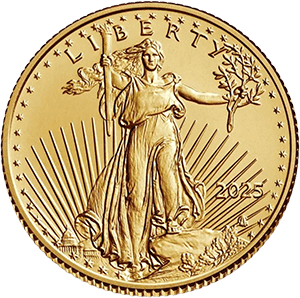
Recessions invariably generate financial uncertainty and upheaval. In such times, investors often look to protect their portfolios and potentially even profit from the economic downturn. One of the asset classes that has historically been a popular choice during recessions is precious metals, such as gold, silver, and platinum. But should you invest in precious metals during a recession? Let's delve into this important question.
Precious metals are considered a "safe haven" during times of economic instability. Their value doesn't rely on an issuer's promise to pay, such as a government or corporation, making them less susceptible to default risk. Most notably, gold often shines the brightest among precious metals during turbulent economic times. Let's explore why.
-
Hedge Against Inflation: In response to a recession, central banks often implement policies aimed at stimulating the economy, such as reducing interest rates and increasing money supply. While these actions can stimulate economic activity, they also increase the risk of inflation. Gold is widely viewed as an effective hedge against inflation, as its value tends to increase when the cost of living rises.
-
Store of Value: Gold is recognized worldwide for its intrinsic value. Unlike paper currencies or other assets, gold doesn't depreciate over time. Therefore, during recessions, when the value of many investments decline, gold can retain its value, providing a safety net for investors.
-
Diversification: Precious metals typically have a low correlation with other asset classes like stocks and bonds. Thus, adding them to a portfolio can provide diversification, reducing the overall risk.
-
Liquidity: Despite their tangible nature, precious metals are highly liquid. They can be quickly sold for cash, which can be a vital advantage during a recession when cash flow is crucial.

Given these reasons, it's clear that investing in precious metals can provide a buffer against the negative impacts of a recession. However, it's important to approach it with a balanced perspective.
While precious metals can offer stability and protection during economic downturns, they are not without risks. Precious metals do not yield dividends or interest, and their value is primarily driven by market sentiment. Thus, if investor sentiment shifts, the price of precious metals can drop.
Moreover, while the price of gold, in particular, often rises during economic downturns, this isn't always the case. Various factors can influence the price of gold, including supply and demand dynamics, global geopolitical events, and the strength of the U.S. dollar.
Lastly, while adding precious metals to your investment portfolio during a recession can be a wise move, it shouldn't dominate your investment strategy. Diversification remains a key principle of successful investing. A well-balanced portfolio spread across different asset classes, including stocks, bonds, real estate, and cash, along with precious metals, is typically the best defense against recessionary forces.
In conclusion, investing in precious metals during a recession can be a prudent strategy, offering a hedge against inflation, a store of value, and a means of diversification. However, like any investment decision, it should be made in the context of your overall financial plan and risk tolerance. As always, it's advisable to consult with a financial advisor to help guide these decisions and ensure your investment strategy aligns with your financial goals and needs.









